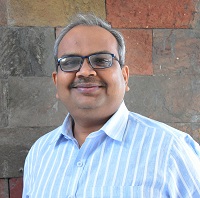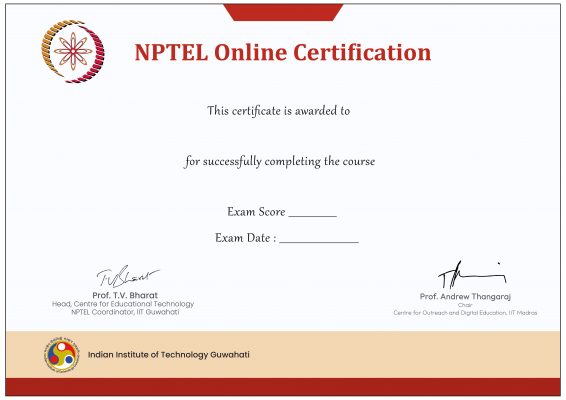Description
INTENDED AUDIENCE
UG, PG students of Mechanical, Production, Industrial Engineering, Mechatronics Engineering. Practicing engineers.
PREREQUISITES
INDUSTRIES SUPPORT
ABOUT THE INSTRUCTOR

Dr. Shrikrishna N. Joshi has completed his doctoral studies in the area of Intelligent process modeling and optimization of electric discharge machining process from IIT Bombay, Mumbai, India in 2009. Currently, he is working as an Associate Professor in the Department of Mechanical Engineering at Indian Institute of Technology Guwahati, India. He was a visiting faculty at the Asian Institute of Technology (AIT), Bangkok, Thailand in 2015. His research interests include mechatronics and manufacturing automation, CAD/CAM, advanced and precision manufacturing processes with a focus on applications of laser in manufacturing, thin-wall machining and single point diamond turning. Three PhD students have been graduated under his supervision and eight are in pipe-line. He has published about 55 research papers and six book chapters in refereed international journals and conferences. He has edited two books on “Laser-based manufacturing” and a book on Advances in Computational Methods in Manufacturing with Springer Nature. He has carried out sponsored and consultancy research work of about 50 Lakhs. The consultancy work was aimed at “Mechanization of Food Grain Handling Operations at FCI Godowns”. Dr. Joshi has also developed a web course on Mechatronics and Manufacturing Automation under the scheme of NPTEL of MHRD, Govt. of India. The course was very well appreciated among the engineering industry, academia and research community. He has conducted this course at IIT Guwahati four times for B.Tech final year, M.Tech. and Ph.D students.



B Sai Sudha Rani –
super explaination sir